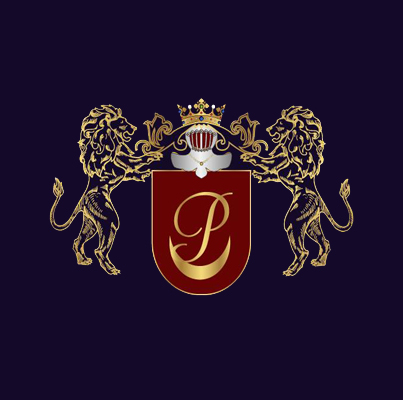КОССОВСКИЙ ДВОРЕЦ
Puslowski family
The Puslovskys are from the Grand Duchy of Lithuania and it was on the territory of modern Belarus that they owned their main estates. This family originally bore the surnames Pozleyskiy, Pozlovskiy, Poslovskiy or Puzlovskiy, and also used the nickname Mongud. We meet the first traces of this family in the Peski estate (also called Piaski - Belarus, Brest region, Berezovsky district), located above the Black Lake not far from Bereza Kartuzskaya. The first known representative of the family Yakov Puslovsky (1572 - 1638) becomes a partial owner of this estate after his marriage to Barbara Sirucheva, who brought him 2/3 of the property, one part of which she received from her parents, and the other from her uncle. Then Yakov Puslovsky bought the remaining part from the Roginskys, and thanks to this, Sands again became the property of one family and remained in their possession until 1939. Probably, Yakov led a quiet and calm life, with the exception of his participation in the campaign against Moscow under the command of Hetman Jan Karol Chodkiewicz. He was in charge of supplying oats to the royal horses, which earned him the title of "royal oatmeal".
The beginning of the Puslovsky family was laid by the grandson of Yakov, Kazimir Michal Puslovsky Mongud (? - 1696) - a relative of the Vishnevetsky and Sobessky. From 1651 he served as a lieutenant in the Lithuanian hussar regiment and from 1675 he was a cornet of the Pinsk Lithuanian hussars, then a colonel of the royal hussars. In 1676 he became Rechitsky's sub-table, in addition, he was a deputy of the Lithuanian court, a representative of Hetman Kazimir Sapieha at the Seimas and Seimiks. Kazimir Puslovsky was a very active person and received numerous royal gifts for his services. In 1662 he married Katarzyna Makovetska. He died in 1696 in the Grove, leaving his son - Jozef Dominik Puslovsky.
The greatest prosperity of the Puslovskys family family is due to the son of Jozef Dominik - Frantisek Puslovsky (1730 - 08/06/1799). Frantisek was Rechitsky's podstol, a magnate in the Sands and chamberlain of King Stanislav August Poniatowski, who was friends with Ludwik Kosciuszko (father of Tadeusz Kosciuszko). He led a truly social life with sumptuous receptions for important guests. He was married twice and from his second wife, Solomeya Grabovskaya, had 3 daughters and 6 sons. The youngest son of Frantishek was Wojciech Puslovsky (06.21.1762 - 03.03.1833) - Russian Privy Councilor, Real Counselor of Finance, Chancellor of the Treasury of the Kingdom of Poland, Slonim deputy at the Four-Year Diet, Marshal of the Noblemen of the Slonimsky County (1816), Knight of the Order of St. Anna 1st class and economist, capable financier and economist. He owned vast estates in Chomsk, Peski, Goshchev, Synkovichi, Telekhany Kossovo-Polessky in the Marachov region, and in many other places.
In 1799, Wojciech Puslowski married Jozef Agnieszka Franciska Drucka-Lubecka, from whom he had 2 daughters and 5 sons. His daughters were: Genovefa Puslovskaya and Teresa Puslovskaya. The sons were successively: Francis, Vladislav Jan Adam, Titus Adam, Xavier Francis and Vandalin. Wojciech died in Szydlowiec.
Francis Puslovsky (1800 - 15.08.1859) served as a diplomat at the Russian embassy in Paris.
Vladislav Jan Adam Jozef Agrippa Puslovsky (1801 - 1859) was a marshal of the gentry in the Oshmyany district, and he was responsible for the functions of a marshal of the Grodno province, for which he was appointed a knight of the Order of St. Anna of the 2nd class by the Imperial decree of February 16, 1840. He married in May 1839 in St. Petersburg to Genovef Maria Paulina Emilia Drutskaya-Lyubetskaya (06/30/1820 - 02/23/1867). He had 2 sons: Frantisek Ksaver Puslovsky and Zygmunt Vladislav Nikolai. He died in 1859 in Warsaw from apoplexy. After the death of her husband, Genovef Puslovska left with her sons to the West, where she stayed mainly in Rome and Paris. Vladislav Puslovsky's line continues to this day.
Titus Adam Puslovsky (1803 - 03/05/1854) was a hussar in the Tsar's Alexandria regiment; retired from service with the rank of cornet (junior officer). Participated in the November Uprising, became its leader in the Pinsk region.
Xavier Frantisek Puslovsky (1806 - 01/09/1874) was a collector of works of art and antiques, an active philanthropist. He refused to inherit some of his father's property and devoted himself to scientific work.
Vandalin Puslovsky (1814 - 06.07.1884) showed great interest in collecting art and antiques, was a numismatist, was also interested in architecture and archeology. Became the owner of the estate Kossov-Polessky ur. Marachovshchina with its surroundings, also the estates of Svisloch and Piasechna in the Grodno province. In 1847 he married Yadviga Golabek-Yazerskaya (1827-14.07.1901), from whom he had 3 children: son Leon Puslovsky and two daughters: Genovefa and Martha Marie. In 1871, Pope Pius IX gave Vandalin Puslovsky (and his brother Xaver Francis) the title of papal count. He died in early July 1884 in Paris and was buried in the Pere Lachaise cemetery.
Genovefa Maria Jozefa Apolonia Eva Puslovskaya (1852 - 1936) married Adam Alfred Gustav Broel-Plater, equestrian at the court of the Russian emperor, actual adviser to the United States, Marshal of the gentry of Vilna province, holder of the Order of St. Vladimir, 2nd class. She bore him 2 sons: Marian Stefan Vandalin and George Florian.
Marta Maria Puslovska (1859 - 1943) was the maid of honor of the imperial Russian court, since 1882 the second wife of Casimir Korvin-Krasiński. She gave birth to two sons: Mikhail Casimir Maryan and Francis Casimir Vandalin Louis.
Leon Puslovsky (? - 03/19/1894) was an unsurpassed publicist. Participated in the VIII session of the International Statistical Congress in St. Petersburg, was a member of the Secretariat of the Congress. In 1892, a series of trials began with Leon's participation, first against the background of financial disputes between Ignatsy Karol Korvin-Milevsky and Leon Puslovsky. In the final period of his life, Leon Puslovsky began to sell his property (allegedly "broke in Monte Carlo", that is, lost in a local casino). He died on March 19, 1894 at the age of 42 and was buried in Vilnius.


